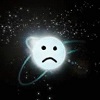probability question
Moderator: Community Team
25 posts
• Page 1 of 1
probability question
in 2v2 escalating game,
what is the probability of having at least 1 set when me and my partner holding 3 cards each ?
what is the probability of having at least 1 set when me and my partner holding 3 cards each ?
LEGENDS of WAR
-
 HardAttack
HardAttack
- Posts: 1935
- Joined: Fri Jul 11, 2008 12:15 pm



























Re: probability question
well, since the two are independent, aren't the odds the same for either of you as when you play alone?
-

 timogl
timogl
- Posts: 148
- Joined: Tue Jun 19, 2007 2:51 pm





















Re: probability question
timogl wrote:well, since the two are independent, aren't the odds the same for either of you as when you play alone?
i dont think so...
single player to catch a set in 3 cards is 1/3...
do you mean it is same probability for 2 players with 3 cards each, any of them or both of them, probability still 1/3 ?
i dont think so...
now playing/taking couple of turns,
i ll study on this, lol.
LEGENDS of WAR
-
 HardAttack
HardAttack
- Posts: 1935
- Joined: Fri Jul 11, 2008 12:15 pm



























Re: probability question
The odds for either of you to have a set is 2/3. The odds for you both to have a set is 1/9.
░▒▒▓▓▓▒▒░
-

 DoomYoshi
DoomYoshi
- Posts: 10715
- Joined: Tue Nov 16, 2010 9:30 pm
- Location: Niu York, Ukraine



























Re: probability question
DoomYoshi wrote:The odds for either of you to have a set is 2/3. The odds for you both to have a set is 1/9.
odds for both of us is ok, it is 1/9
but the first part is wrong i guess,
take this, what if the game was not 2v2 but 3v3,
then probability, is it 3/3 ?
LEGENDS of WAR
-
 HardAttack
HardAttack
- Posts: 1935
- Joined: Fri Jul 11, 2008 12:15 pm



























Re: probability question
since they are independent events, they multiply, they do not add. the math goes like this:
in 2v2, if odds of getting a set in 3 cards is 1/3:
Neither has a set: (2/3)*(2/3) = 4/9
Exactly 1 has a set: (2/3)*(1/3)*2 = 4/9
Both have a set: (1/3)*(1/3) = 1/9
Total = 9/9 (100%)
in 3v3:
none have a set: (2/3)*(2/3)*(2/3) = 8/27
exactly 1 has a set: 3*(1/3)*(2/3)*(2/3) = 12/27
exactly 2 have a set: 3*(1/3)*(1/3)*(2/3) = 6/27
all 3 have a set: (1/3)*(1/3)*(1/3) = 1/27
Total = 27/27
in 2v2, if odds of getting a set in 3 cards is 1/3:
Neither has a set: (2/3)*(2/3) = 4/9
Exactly 1 has a set: (2/3)*(1/3)*2 = 4/9
Both have a set: (1/3)*(1/3) = 1/9
Total = 9/9 (100%)
in 3v3:
none have a set: (2/3)*(2/3)*(2/3) = 8/27
exactly 1 has a set: 3*(1/3)*(2/3)*(2/3) = 12/27
exactly 2 have a set: 3*(1/3)*(1/3)*(2/3) = 6/27
all 3 have a set: (1/3)*(1/3)*(1/3) = 1/27
Total = 27/27
-

 Swifte
Swifte
- Posts: 2474
- Joined: Wed Nov 14, 2007 12:05 pm
- Location: usually Mahgreb




























 3
3




Re: probability question
there are three cards colors. you have three cards.
when you have three cards, the possible combinations (4) that match are
red red red
blue blue blue
green green green
red blue green
that don't match (6) are
red red blue
red red green
green green red
green green blue
blue blue red
blue blue green
so, in the first place, that is not one in three, it is 4 in 10.
and your partner odds to match are precisely the exact same as yours are, you are drawing from the same exact set of possibles aren't you? and why do they multiply? explain that. i understand you applying some law of probability, but i don't believe it applies here. this is three random draws that can fall in any one of 10 combinations. two vs two, three vs three, 100 vs 100, everybody still has the same chance. four in 10. it doesn't change.
when you have three cards, the possible combinations (4) that match are
red red red
blue blue blue
green green green
red blue green
that don't match (6) are
red red blue
red red green
green green red
green green blue
blue blue red
blue blue green
so, in the first place, that is not one in three, it is 4 in 10.
and your partner odds to match are precisely the exact same as yours are, you are drawing from the same exact set of possibles aren't you? and why do they multiply? explain that. i understand you applying some law of probability, but i don't believe it applies here. this is three random draws that can fall in any one of 10 combinations. two vs two, three vs three, 100 vs 100, everybody still has the same chance. four in 10. it doesn't change.
-

 timogl
timogl
- Posts: 148
- Joined: Tue Jun 19, 2007 2:51 pm





















Re: probability question
(i won't delete. but i do aplogize if the odds actually are one in three because of how the blue, green and red relate to each other, i don't keep up with that, but, i assume red is the highest number, follwed by green and blue (i suppose they are distributed the same way green, red and blue sets relate in flat rate, that is, 8-6-4?). so if that works out to one in three, thats fine. but i don't understand why changing the number of players changes the chances for any one player, your partner or any other player matching up. any player's chance of matching has to stay the same, doesn't it?)
-

 timogl
timogl
- Posts: 148
- Joined: Tue Jun 19, 2007 2:51 pm





















Re: probability question
yes. the odds of any player individually having a set with 3 cards is constant. the question was how to determine if at least 1 of a set of players has a set - surely you'd agree that the odds of at least 1 player having a set would vary by the number of players involved. more players, greater chance at least one has a set, as the math i posted above shows. if i told you to flip a coin twice, and then flip it 4 times, which time do you think you have a greater chance of flipping heads at least once? each flip may be 50/50, but give me 4 flips for that bet, please.
-

 Swifte
Swifte
- Posts: 2474
- Joined: Wed Nov 14, 2007 12:05 pm
- Location: usually Mahgreb




























 3
3




Re: probability question
As far as an individual player, the odds of having a 3 card set are 1/3, which is most easy to think about in the following way:
if you get red and red, only red makes a set (1 color out of 3)
if you get blue and blue, only blue makes a set (1 color out of 3)
if you get green, green, only green makes a set (1 color out of 3)
if you get 2 mixed cards, only the remaining color will make a set. (1 color out of 3)
so, regardless of what 2 cards you get to start, only 1 color out of the 3 will get you a 3 card set. Hence the use of 1/3 for an individual player.
Why does your estimate come out high? Because you have not considered all permutations. In fact there are 27 (3*3*3) ways of drawing cards.
Of the 27 combinations, only the 9 highlighted in green give you a 3 card set. 9 of 27 is 1/3.
if you get red and red, only red makes a set (1 color out of 3)
if you get blue and blue, only blue makes a set (1 color out of 3)
if you get green, green, only green makes a set (1 color out of 3)
if you get 2 mixed cards, only the remaining color will make a set. (1 color out of 3)
so, regardless of what 2 cards you get to start, only 1 color out of the 3 will get you a 3 card set. Hence the use of 1/3 for an individual player.
Why does your estimate come out high? Because you have not considered all permutations. In fact there are 27 (3*3*3) ways of drawing cards.
Of the 27 combinations, only the 9 highlighted in green give you a 3 card set. 9 of 27 is 1/3.
-

 Swifte
Swifte
- Posts: 2474
- Joined: Wed Nov 14, 2007 12:05 pm
- Location: usually Mahgreb




























 3
3




Re: probability question
if there are 27 combinations then list them.
oh ok, i looked at your combinations. i am sorry, but red red blue is the same thing as blue red red (and so on). there are not 27 unique combinations.
oh ok, i looked at your combinations. i am sorry, but red red blue is the same thing as blue red red (and so on). there are not 27 unique combinations.
-

 timogl
timogl
- Posts: 148
- Joined: Tue Jun 19, 2007 2:51 pm





















Re: probability question
(the 3! thing, 3*3*3, that is true for when you have three numbers, you say, how many 3 number combinations can you make. when you have, say, 1, 2 and 3, yes, 113 is different from 311. but these are colors. when you change their position in the order (red red blue and blue red red for intance, it doesn't change their value. they either match or they don't. there are 10 unique cominations, i listed them. four of them are matches. the one in three part i won't disupte, it makes perfect sense. as far as three people drawing cards, if you say the probability that one of them will draw a set is higher because there are higher because there are more of them, ok, if you say so.)
-

 timogl
timogl
- Posts: 148
- Joined: Tue Jun 19, 2007 2:51 pm





















Re: probability question
timogl wrote:(the 3! thing, 3*3*3, that is true for when you have three numbers, you say, how many 3 number combinations can you make. when you have, say, 1, 2 and 3, yes, 113 is different from 311. but these are colors. when you change their position in the order (red red blue and blue red red for intance, it doesn't change their value. they either match or they don't. there are 10 unique cominations, i listed them. four of them are matches. the one in three part i won't disupte, it makes perfect sense. as far as three people drawing cards, if you say the probability that one of them will draw a set is higher because there are higher because there are more of them, ok, if you say so.)
huh?!?
you start of with red red red, then constantly chance one card till you have also had green green green and blue blue blue.
if you like, you can use three sides dice.
1,1,2 and 2,1,1, are then different combinations. both dont give you a set, but its about the possibility, so you need to list all possibilities. as in, you are more likely to see 1,1,2 (=also 2,1,1)then 1,1,1 in a series of 3 spoils.
27 posibilities, 9 set 27/9= one in 3
so each person has a 1 in 3 chance to get a set.
now, back to your comment. swifte said that if you are playing with multiple people(more then 1),the amount of chances to get a set (per individual are 1/3) are equal per person, but as a group, if 3 peoples have 3 spoils, then its very likely that one of them has a set (and the other 2 have not)
play 27 games on paper for 3 players. get to 3 spoils, write down all the spoil results (not only the "unique" variants)and again its 1/3 chance. the chances everybody(all 3) have a spoil happens 1/9 times,one player getting aspoils but the other 2 not, 1/3.
does this help?
-

 SirSebstar
SirSebstar
- Posts: 6969
- Joined: Fri Oct 27, 2006 7:51 am
- Location: SirSebstar is BACK. Highscore: Colonel Score: 2919 21/03/2011





















Re: probability question
timogl wrote:(the 3! thing, 3*3*3, that is true for when you have three numbers, you say, how many 3 number combinations can you make. when you have, say, 1, 2 and 3, yes, 113 is different from 311. but these are colors. when you change their position in the order (red red blue and blue red red for intance, it doesn't change their value. they either match or they don't. there are 10 unique cominations, i listed them. four of them are matches. the one in three part i won't disupte, it makes perfect sense. as far as three people drawing cards, if you say the probability that one of them will draw a set is higher because there are higher because there are more of them, ok, if you say so.)
when it comes to permutations the order matters however for the determination of the odds of 1 player having a set it does not.
it does not matter if you got red then blue or blue then red, there is only 1 card out of 3 that can give you a set.
-

 greenoaks
greenoaks
- Posts: 9977
- Joined: Mon Nov 12, 2007 12:47 am






















Re: probability question
[quote="timogl"]if the
Last edited by HardAttack on Fri Dec 21, 2012 9:15 am, edited 1 time in total.
LEGENDS of WAR
-
 HardAttack
HardAttack
- Posts: 1935
- Joined: Fri Jul 11, 2008 12:15 pm



























Re: probability question
i don't get the controversy. one in three is fine (if the red, green and blue are present in equal numbers in the pool you draw from, that is, the chance of drawing, on any draw, green, red and blue are the same. if there are more red than green, and more green than blue, then the chances are different. the thing there with the 27 combinations of 1, 2 and 3 is perfectly valid. but there are only 10 ways the blue, green and red can fall. and four ways they can match. i listed them. as i said, red red blue is the same as blue red red.)
-

 timogl
timogl
- Posts: 148
- Joined: Tue Jun 19, 2007 2:51 pm





















Re: probability question
timogl wrote:i don't get the controversy. one in three is fine (if the red, green and blue are present in equal numbers in the pool you draw from, that is, the chance of drawing, on any draw, green, red and blue are the same. if there are more red than green, and more green than blue, then the chances are different. the thing there with the 27 combinations of 1, 2 and 3 is perfectly valid. but there are only 10 ways the blue, green and red can fall. and four ways they can match. i listed them. as i said, red red blue is the same as blue red red.)
The math for the 27 combinations support the 1/3 odds that you say you accept.
What the 27 combinations shows you is that the odds of getting the 10 ultimate combinations are different, so it is incorrect to assign them equal probability (i.e. saying it is 4 out of 10).
The permutations show that:
1. there is only 1 way to get red red red (So this will happen 1 out of 27 times)
2. there is only 1 way to get blue blue blue (So this will happen 1 out of 27 times)
3. there is only 1 way to get green green green (So this will happen 1 out of 27 times)
4. there are 6 ways to get a set with 1 blue 1 red 1 green (So this will happen 6 out of 27 times)
5. there are 3 ways of ending up with 2 red, 1 blue (So this will happen 3 out of 27 times)
6. there are 3 ways of ending up with 2 red, 1 green (So this will happen 3 out of 27 times)
7. there are 3 ways of ending up with 2 blue, 1 green (So this will happen 3 out of 27 times)
8. there are 3 ways of ending up with 2 blue, 1 red (So this will happen 3 out of 27 times)
9. there are 3 ways of ending up with 2 green, 1 red (So this will happen 3 out of 27 times)
10. there are 3 ways of ending up with 2 green, 1 blue (So this will happen 3 out of 27 times)
so of the 10 combinations you listed, the odds of each are:
1: 1/27
2: 1/27
3: 1/27
4: 6/27
5: 3/27
6: 3/27
7: 3/27
8: 3/27
9: 3/27
10: 3/27
Combinations 1-4 result in a 3 card set - the sum of those probabilities is 9/27, or 1/3.
That's as clear as I can make it. boils down to, just because the order doesn't matter, doesn't mean the odds of each combinations of the same. Just like the odds of rolling a sum of 12 with two dice is much lower than the sum being a 7, because there are way more combinations that create a sum of 7 than a 12.
-

 Swifte
Swifte
- Posts: 2474
- Joined: Wed Nov 14, 2007 12:05 pm
- Location: usually Mahgreb




























 3
3




Re: probability question
don't get me wrong. i am not trying to argue. one in three, ok (provided the red, blue and green are available in equal numbers). you can write 27 different combinations or red, blue and green. but only the unique ones are relevant. all that stuff with dice is ok, i see your point, but it doesn't apply. we are talking about red, blue and green. there are only 10 unique combinations. not 27. red red blue and blue red red are the same combination. green red red and red red green are not unique. they are the same. you are trying to match three cards. the order of it does not matter. as you said, no matter what the first two colors are, the chance of matching with the third card is one in three. it does not change because of the order.
1. the first two can be red red, for instance. you draw blue. you have red red blue.
2. the first two can be red blue. you draw red. you have red blue red (since you want the order of how you write the combinations to have some significance).
the two card sets in (1) and (2) are the same.......thing. they are not different.
1. the first two can be red red, for instance. you draw blue. you have red red blue.
2. the first two can be red blue. you draw red. you have red blue red (since you want the order of how you write the combinations to have some significance).
the two card sets in (1) and (2) are the same.......thing. they are not different.
-

 timogl
timogl
- Posts: 148
- Joined: Tue Jun 19, 2007 2:51 pm





















Re: probability question
(and i do aplogize. we just may be talking about two entirely different things and i am too dense to understand.)
-

 timogl
timogl
- Posts: 148
- Joined: Tue Jun 19, 2007 2:51 pm





















Re: probability question
its okay, we are all posting here cause we fee the seasonal love, or something. its okay
-

 SirSebstar
SirSebstar
- Posts: 6969
- Joined: Fri Oct 27, 2006 7:51 am
- Location: SirSebstar is BACK. Highscore: Colonel Score: 2919 21/03/2011





















Re: probability question
timogl wrote:don't get me wrong. i am not trying to argue. one in three, ok (provided the red, blue and green are available in equal numbers). you can write 27 different combinations or red, blue and green. but only the unique ones are relevant. all that stuff with dice is ok, i see your point, but it doesn't apply. we are talking about red, blue and green. there are only 10 unique combinations. not 27. red red blue and blue red red are the same combination. green red red and red red green are not unique. they are the same. you are trying to match three cards. the order of it does not matter. as you said, no matter what the first two colors are, the chance of matching with the third card is one in three. it does not change because of the order.
1. the first two can be red red, for instance. you draw blue. you have red red blue.
2. the first two can be red blue. you draw red. you have red blue red (since you want the order of how you write the combinations to have some significance).
the two card sets in (1) and (2) are the same.......thing. they are not different.
Yes, but the point is, getting a set with two reds and a blue is more likely to occur than having red/green/blue, which is obvious if you write out the possible combinations. The number of unique combinations doesn't matter when the different unique combinations are not equally probable.
If you had a seven sided die, with 1,1,2,3,4,5,6 then the fact that there are multiple 1's does not change what happens when you roll a 1, but it does change how likely it is to get a 1. Your argument is analogous to saying that for this die, there's a 1/6 chance that you'll roll a 6 because there's only 6 unique numbers.
-

 Metsfanmax
Metsfanmax
- Posts: 6722
- Joined: Wed Apr 11, 2007 11:01 pm

























Re: probability question
not to belobor it, but the question at the top of this thread was not about drawing a set when you already had two, it was about two players (on a team) that have already drawn three cards each. it is beside the point now what their chances were of getting whatever combination. they either have a match, either or them, both of them, or neither. and thats it. and if one of them has blue blue red it does not matter how he drew it. if one of the drew blue blue red (in that order) and the other drew red blue blue (in that order) each of them now has the same card set.
how any of that relates now, now that they both have three cards (they're not drawing, they have them. its like you played cards, you dealt them both three from a crazy big shoe with blues, reds and greens. the shoe has so many cards what card already went out scarcely affects what a player subsequently draws (if i am understanding right, you are all saying the reds, blues and greens are available in the same levels, if not, then i guess you would be working out all kinds of odds for what it is to draw a blue card when you already have to blues, as opposed to a red or green card). anyway, the cards are dealt, imgine it like bridge, with partners. north and south have three cards each. what are the odds one of them has a match? i am not denying whatever odds you want to say. but if north drew his cards in this order
blue red blue
and south drew his
red blue blue
they have the same set of cards.
how any of that relates now, now that they both have three cards (they're not drawing, they have them. its like you played cards, you dealt them both three from a crazy big shoe with blues, reds and greens. the shoe has so many cards what card already went out scarcely affects what a player subsequently draws (if i am understanding right, you are all saying the reds, blues and greens are available in the same levels, if not, then i guess you would be working out all kinds of odds for what it is to draw a blue card when you already have to blues, as opposed to a red or green card). anyway, the cards are dealt, imgine it like bridge, with partners. north and south have three cards each. what are the odds one of them has a match? i am not denying whatever odds you want to say. but if north drew his cards in this order
blue red blue
and south drew his
red blue blue
they have the same set of cards.
-

 timogl
timogl
- Posts: 148
- Joined: Tue Jun 19, 2007 2:51 pm





















Re: probability question
this is the anwser
Swifte wrote:since they are independent events, they multiply, they do not add. the math goes like this:
in 2v2, if odds of getting a set in 3 cards is 1/3:
Neither has a set: (2/3)*(2/3) = 4/9
Exactly 1 has a set: (2/3)*(1/3)*2 = 4/9
Both have a set: (1/3)*(1/3) = 1/9
Total = 9/9 (100%)
in 3v3:
none have a set: (2/3)*(2/3)*(2/3) = 8/27
exactly 1 has a set: 3*(1/3)*(2/3)*(2/3) = 12/27
exactly 2 have a set: 3*(1/3)*(1/3)*(2/3) = 6/27
all 3 have a set: (1/3)*(1/3)*(1/3) = 1/27
Total = 27/27
-

 SirSebstar
SirSebstar
- Posts: 6969
- Joined: Fri Oct 27, 2006 7:51 am
- Location: SirSebstar is BACK. Highscore: Colonel Score: 2919 21/03/2011





















Re: probability question
a fun discussion that often appears 
When someone holds two spoils there are only two possibilities they are of the same colour or they are of different colour. Doesn't matter what the colours are or the order in which they are drawn they are either of the same colour or different colour
Any situation two spoils, the odds are 1/3 the third spoils will give a set. If the two are the same colour, 1/3 chance the third will be of the same colour, needed to make a matching set. In the different situation where the two are of two different colours, 1/3 the third spoils will be of the missing third colour needed for a rainbow set.
This is not a certainty it is probability and we have to be careful of the Gamblers Fallacy
http://en.wikipedia.org/wiki/Gambler%27s_fallacy
But to answer the question asked I think the multiplication approach is correct. When you are looking to the future probability, not a certainty, probability, of at least one of the two players holding two spoils, getting a set, maybe just one of them, OR call me maybe baby ,two of them getting a set, the odds are 5/9. the chances of none of them getting a set, 4/.
So if I was looking at two oppos both holding two spoils. and boiling it down to two and only two likely outcomes the chances at least one of them getting a set or noen of them getting a set would say a very slight favouring at leat one of them getting a set the odds 5/9 yes versus 4/9 no.
With escalating spoils i would not just look at two probabilities I would look at multiple probabilities- starting with 1/ 3 the first oppo up #1 gets a set, Then regardless of whether s/he does get a set or not. 1/3 the next oppo up #2 gets a set. Which leads to four difffernt possible outcomes all of which can be big factors in escalating spoils
#! no set #2 no set
#1 no set #2 set
#1 set #2 no set
#1 set #2 set
Agreed
When someone holds two spoils there are only two possibilities they are of the same colour or they are of different colour. Doesn't matter what the colours are or the order in which they are drawn they are either of the same colour or different colour
Any situation two spoils, the odds are 1/3 the third spoils will give a set. If the two are the same colour, 1/3 chance the third will be of the same colour, needed to make a matching set. In the different situation where the two are of two different colours, 1/3 the third spoils will be of the missing third colour needed for a rainbow set.
This is not a certainty it is probability and we have to be careful of the Gamblers Fallacy
http://en.wikipedia.org/wiki/Gambler%27s_fallacy
The Gambler's fallacy, also known as the Monte Carlo fallacy (because its most famous example happened in a Monte Carlo Casino in 1913),[1][2] and also referred to as the fallacy of the maturity of chances, is the belief that if deviations from expected behaviour are observed in repeated independent trials of some random process, future deviations in the opposite direction are then more likely.
But to answer the question asked I think the multiplication approach is correct. When you are looking to the future probability, not a certainty, probability, of at least one of the two players holding two spoils, getting a set, maybe just one of them, OR call me maybe baby ,two of them getting a set, the odds are 5/9. the chances of none of them getting a set, 4/.
So if I was looking at two oppos both holding two spoils. and boiling it down to two and only two likely outcomes the chances at least one of them getting a set or noen of them getting a set would say a very slight favouring at leat one of them getting a set the odds 5/9 yes versus 4/9 no.
With escalating spoils i would not just look at two probabilities I would look at multiple probabilities- starting with 1/ 3 the first oppo up #1 gets a set, Then regardless of whether s/he does get a set or not. 1/3 the next oppo up #2 gets a set. Which leads to four difffernt possible outcomes all of which can be big factors in escalating spoils
#! no set #2 no set
#1 no set #2 set
#1 set #2 no set
#1 set #2 set
Agreed
SirSebstar wrote:this is the anwserSwifte wrote:since they are independent events, they multiply, they do not add. the math goes like this:
in 2v2, if odds of getting a set in 3 cards is 1/3:
Neither has a set: (2/3)*(2/3) = 4/9
Exactly 1 has a set: (2/3)*(1/3)*2 = 4/9
Both have a set: (1/3)*(1/3) = 1/9
Total = 9/9 (100%)
in 3v3:
none have a set: (2/3)*(2/3)*(2/3) = 8/27
exactly 1 has a set: 3*(1/3)*(2/3)*(2/3) = 12/27
exactly 2 have a set: 3*(1/3)*(1/3)*(2/3) = 6/27
all 3 have a set: (1/3)*(1/3)*(1/3) = 1/27
Total = 27/27
Re: probability question
Postby HardAttack on Thu Dec 20, 2012 12:39 pm
cool answer swifte,
answer is 1-(4/9) = 5/9 it is.
Rule 1
-

 Fewnix
Fewnix
- Posts: 1245
- Joined: Sat Apr 25, 2009 2:15 am


























 2
2
25 posts
• Page 1 of 1
Return to Conquer Club Discussion
Who is online
Users browsing this forum: No registered users

